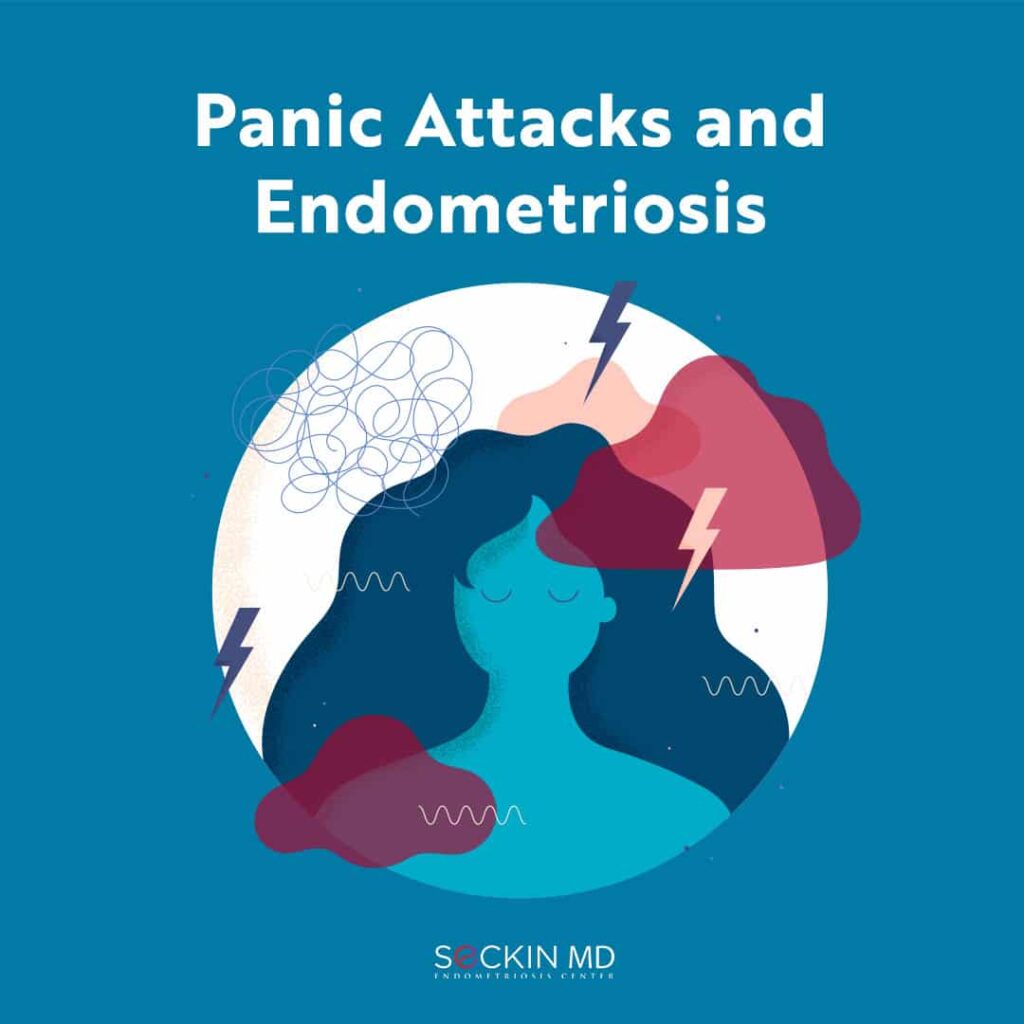Panic Attacks and Endometriosis

Endometriosis can be extremely painful and adversely affect a woman’s personal and professional life. The wide circulation of misinformation pertaining to endometriosis and the propensity for misdiagnosis can add to the confusion. All this can make some patients vulnerable to panic attacks.
What are panic attacks?
Panic attacks are sudden, intense episodes of fear that lead to several physical and emotional reactions with or without a trigger. These can create high emotional upheavals including loss of control or even a fear of death.
Panic attacks can become chronic, especially when the cause of panic is also a chronic or unresolved issue. Sometimes, panic attacks may indicate a more serious condition and you should be evaluated by a primary care physician.
What are the common symptoms?
Panic attacks can have many symptoms depending on the stressor. However, all of them are characterized by a sudden peak in fear within a few minutes of experiencing the stimulus. Some common symptoms of a panic attack include:
- increased heart rate and/or palpitation
- nausea
- shortness of breath
- abdominal cramps
- headache
- chest pain
- profuse sweating
- trembling and chills
- fear of death
- loss of control
- fear of an impending danger
- numbness
- dizziness
How do panic attacks differ from anxiety?
The symptoms of anxiety often overlap with those of panic attacks. However, a panic attack is not a disorder in and of itself, but usually a symptom of another psychologic disorder, such as anxiety, depression or post-traumatic stress disorder. Unlike a panic attack, anxiety happens due to prolonged stress or worry, while a panic attack may or may not have a known trigger.
Anxiety and depression are common in endometriosis patients as the symptoms often have a negative impact on patients’ overall quality of life.
How are panic attacks related to endometriosis?
Episodes of panic attacks are common among endometriosis patients. Most of these episodes are related to chronic pelvic pain. In fact, doctors see mental health as paired elements within the endometriosis pain syndrome.
Many women with endometriosis experience severe, debilitating pelvic pain that is also accompanied by constipation, painful bowel movements, and dyspareunia. The fear of this pain occurring or worsening in the future can be daunting and lead to increased anxiety and panic attacks centered around loss of control. Overall, it can result in setbacks to a woman’s personal and professional life.
How can we minimize them?
Complementary therapies such as yoga, meditation, and mindfulness can help a patient relax, modulate pain, and cope with stressors. Turning to your social network, including friends and family, for emotional support.
Medical and/or surgical treatment with laparoscopic deep excision surgery can improve endometriosis-associated pain and potentially break the cycle of panic attacks.
Evaluation and possible treatment for mental health conditions is important to accomplish prior to surgery. Appropriate care of all of the psychosocial factors that affect pain and endometriosis can help improve recovery times and and post-surgical issues.
Are you experiencing panic attacks? Do you have any tips to deal with them? Please share your experience with others on our post on Facebook or Instagram if you wish to.
Get a Second Opinion
Our endometriosis specialists are dedicated to providing patients with expert care. Whether you have been diagnosed or are looking to find a doctor, they are ready to help.Our office is located on 872 Fifth Avenue New York, NY 10065.
You may call us at (646) 960-3080 or have your case reviewed by clicking here.